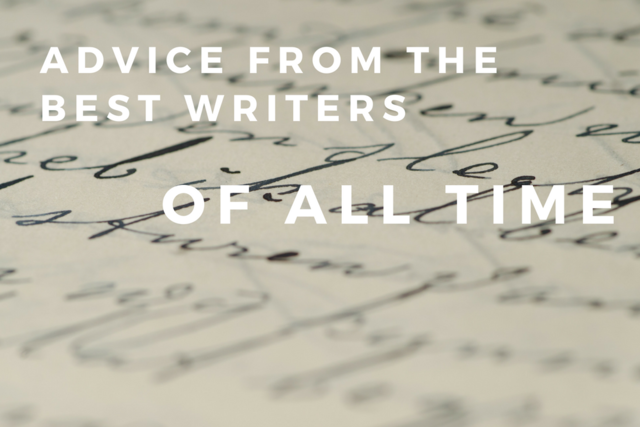Nowadays, there are plenty of resources to help you improve your content, many of which are thoughtfully tailored to suit your industry.
Sometimes, however, it’s best to turn to the classics for guidance. Here, we’ll look at tips from five of the world’s most renowned and celebrated writers, and discuss how their advice can apply to your content.
John Steinbeck
Write as freely and as rapidly as possible and throw the whole thing on paper. Never rewrite until the whole thing is down.
Sure, Steinbeck might have had works of fiction in mind when giving this piece of advice in his 1975 interview with The Paris Review. Nonetheless, the idea that you should silence your inner critic is relevant to all forms of writing, content included (I wrote about this concept in a previous post ).
If you try to edit yourself as you’re writing, then you’ll be constantly distracted by your own judgments and corrections. To fix this, remind yourself that your rough draft is not the draft you’ll be turning in to your boss–once you’re finished, you can self-edit to your heart’s content.
J.K. Rowling
You’ve got to work. It’s about structure. It’s about discipline. It’s all these deadly things that your schoolteacher told you you needed … You need it.
We can all agree that it would be wise to take advice from the world’s third-richest author.
Her thoughts about discipline in writing are especially germane for those who aren’t necessarily professional writers, but are still required to write in the workplace. Thinking about that blog post isn’t going to get you any closer to finishing it–the only way to do that is to carve some time out of your schedule, sit down and write.
Mark Twain
I notice that you use plain, simple language, short words and brief sentences. That is the way to write English—it is the modern way and the best way. Stick to it; don’t let fluff and flowers and verbosity creep in. When you catch an adjective, kill it. No, I don’t mean utterly, but kill most of them—then the rest will be valuable. They weaken when they are close together. They give strength when they are wide apart. An adjective habit, or a wordy, diffuse, flowery habit, once fastened upon a person, is as hard to get rid of as any other vice.
While Mark Twain’s idea of “killing your adjectives” isn’t exactly a cheerful one, it still rings as true today as it did more than 100 years ago, particularly when it comes to content writing.
Anybody can easily get carried away with flowery language and playful adjectives, and I’m certainly not immune. What’s important, however, is that you honestly evaluate your writing during the editing process. Always ask yourself, “Does this word help me to create meaning, or is it simply decorative?”
Neil Gaiman
The best advice I can give on this is, once it’s done, to put it away until you can read it with new eyes. Finish the short story, print it out, then put it in a drawer and write other things. When you’re ready, pick it up and read it, as if you’ve never read it before. If there are things you aren’t satisfied with as a reader, go in and fix them as a writer: that’s revision.
Although you might not be able to realistically get away with locking your content in a drawer for a few weeks, it would be wise to take Gaiman’s advice and exercise some self-restraint.
It can be tempting to immediately dig into what you’ve just written, but in the long run, taking some time to refresh your mind will result in a much more polished piece of content.
Joyce Carol Oates
6) Unless you are experimenting with form–gnarled, snarled & obscure–be alert for possibilities of paragraphing.
— Joyce Carol Oates (@JoyceCarolOates) July 18, 2013
Although this tweet from Joyce Carol Oates may seem like obvious advice, it’s critical to remember, especially when writing content.
Since most content writing is not experimental, it’s important to consider your audience’s ability to read your work. Long blocks of text are dense and intimidating, but short, snappy paragraphs invite the reader to continue.
Did you find these tips helpful? What authors do you wish you could get writing advice from? Feel free to share in the comments below.

Great article!